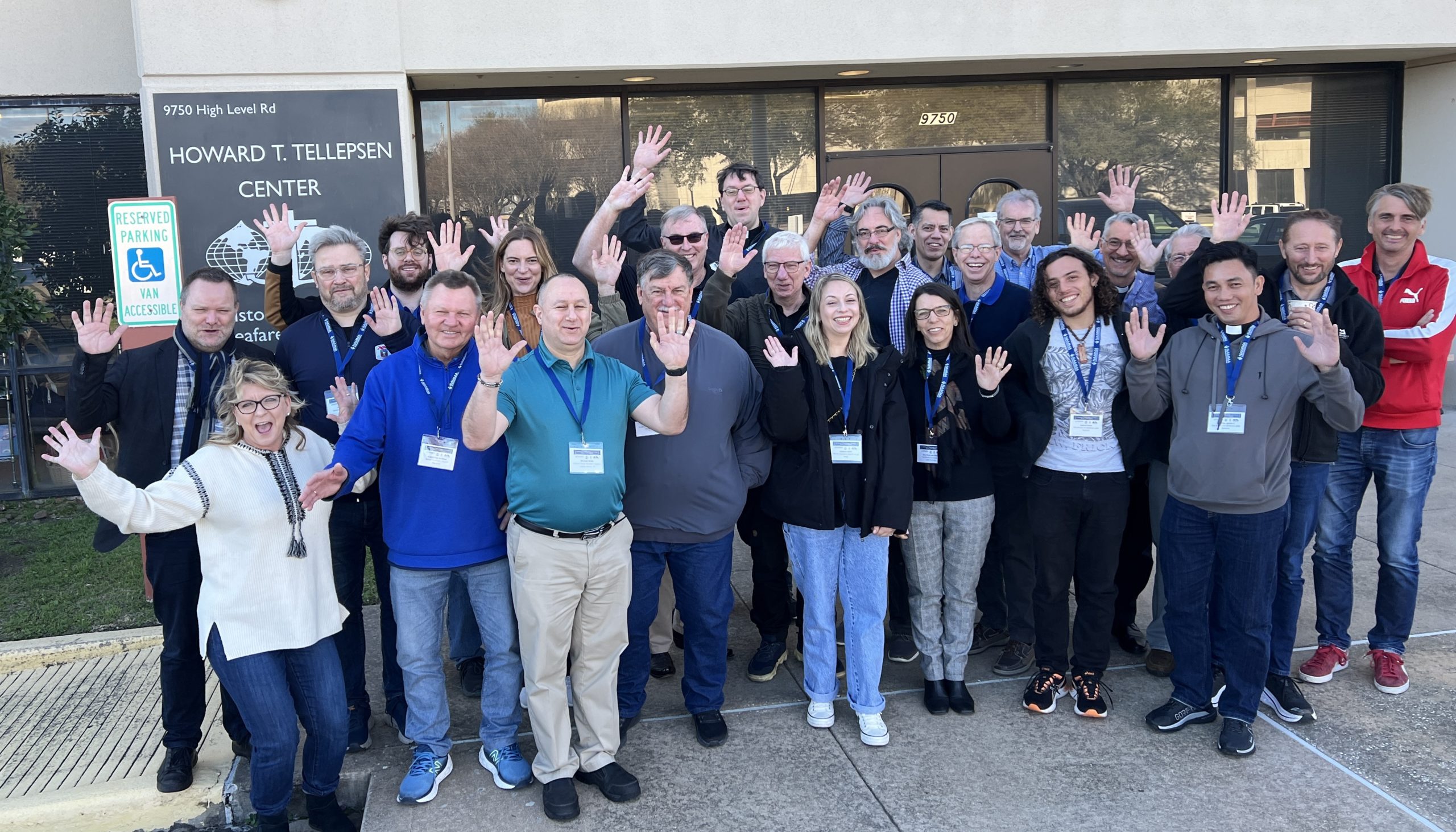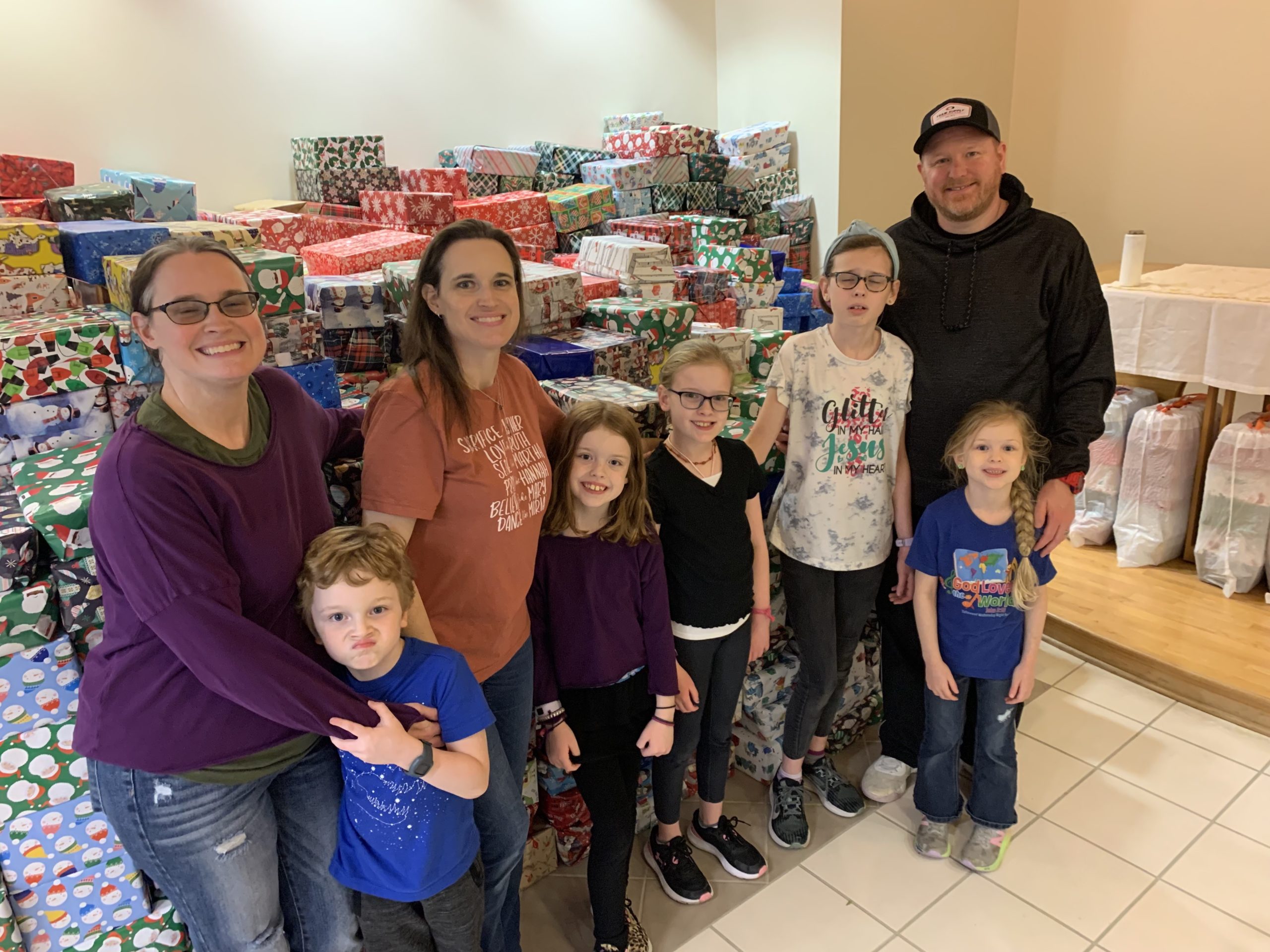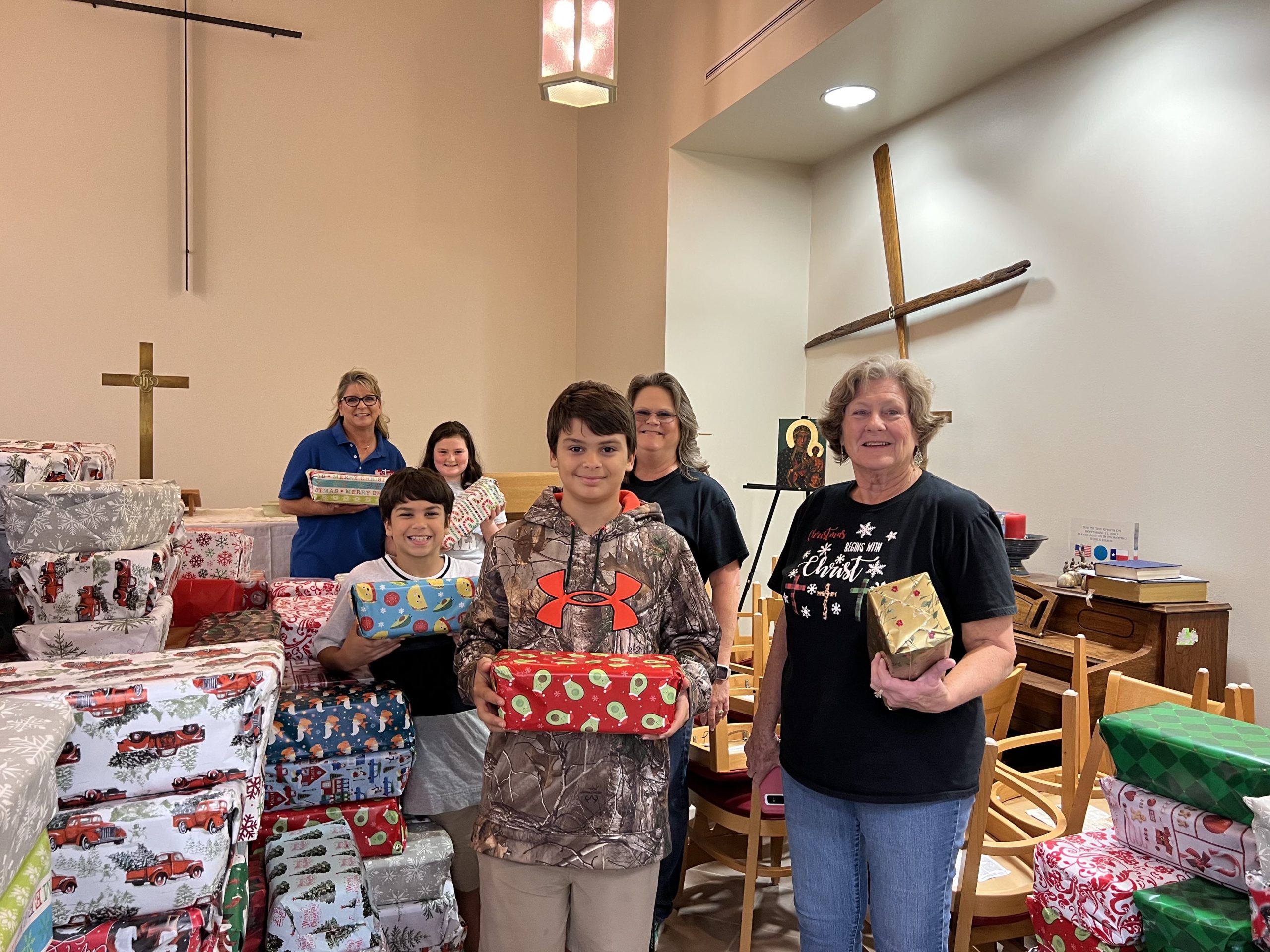by Kevin Walker, NAMMA
More than a month into lockdown, COVID-19 and the safety precautions necessary to contain it continue to take their toll on seafarers’ welfare. Seafarers looking forward to relief have faced extension to their work terms, while those who minister to them face reduced work and feelings of futility. Isolation has increased for all, as have uncertainties about money, vulnerable friends and family, and what kind of future we can expect.
The more seafarers’ situation changes, however, the more our God’s command to love and serve them as ourselves remains the same, and chaplaincies all over have innovated to fulfill it as best we can. The Houston International Seafarers’ Center (HISC), a model of seafarers’ ministry and ecumenism to many of us, has been one such innovator. We talked with some of the people at the HISC as an example both of new approaches to seafarers’ ministry and new challenges for it. If your ministry or the seafarers your ministry is working with are trying other things or facing other challenges that you want to tell us about, please get in touch – the more information and ideas that get shared, the better.
“We want to keep this going as much as possible, but there’s a definite desire to keep everybody safe, limit the exposure, and keep the ministry going as well as we can.” – David Clark, Board Chairman
David Clark’s first few months as chair of the HISC Board have been eventful, to say the least. A veteran of the Port of Houston, he remembers the upheaval after 9/11 and finds that the international dimensions of this crisis make it even more complex. Without the possibility of in-person meetings, he has had to adapt his agenda of closer relations between the board, chaplains, and staff, and since cancelling the HISC’s annual fundraising gala he and the rest of the board have been busy planning an online substitute.
When Clark first took leadership earlier this year, he had made it a priority to bring the HISC closer together: “A lot of times, it seems like the board and the chaplains can have a pretty wide gulf between them. But scripture says we have the same boss, we’re different members of the same body, and we need each other. So I really want us to be seen and to work as an integral unit.”
Originally, the hope was that this integration would take the form of spending more time at the center, having chaplains participate more in board meetings, and maybe even board members coming along on ship visits. Now, it takes the form of video conferencing: “I’m meeting with them, and certainly praying for them. I’m encouraging them to use conference calls as a way of meeting with each other, and I’ve been attending their meetings along with Dana. We need to stay connected about what kinds of stumbling blocks they’re encountering, and what we can do to help. Sometimes they just need someone to talk to, so we can do that too.”
On the fundraising side, the HISC board is worried about finances but hoping to supplement them with an “e-gala” that will run over a month: “We’re not the first ones to do that, so we’ve been able to pick up some best practices from others who’ve done it in the past. Instead of being a one-night deal, it will be going on for a month, starting on U.S. National Maritime Day, May 22, and ending Summer Solstice on June 22. We’ll have sponsors; the folks who would have been table sponsors will be other kinds of sponsors, and they’ll be able to invite as many people as they want. We’ll have electronic testimonies with pictures of seafarers from chaplains and gala committee members. We’ll have silent and live auctions electronically. A lot of industries are doing pretty poorly, and it will be a while before that gets better, but we’ll save some expenses on the facility and food. It should be a lot of fun.”
“Every facility here takes its responsibilities very seriously” – Dana Blume, Executive Director
Where once she was occupied running the center, planning for fundraisers, and managing volunteers, Executive Director Dana Blume has had to adjust to relocating work to home, managing chaplains remotely, and hunting for new sources of funding. She’s grateful for the center’s partners in the port community, which have been key to supporting the ministry and keeping the center in the loop.
The HISC began taking COVID-19 precautions fairly early: “In our chaplains’ meeting when we were just aware of COVID coming from China, we decided we would leave it to the individual chaplain to decide whether they were comfortable visiting a ship that had come from certain areas” she says. Soon after, however, it became clear that more steps would need to be taken. The center closed, ship visiting of any kind drew to a temporary halt (chaplains now go to ships’ gangways), and she comes in just to pick up mail and man the desk.
While seafarers cannot come to the HISC, Blume has coordinated with the chaplains to bring a little bit of the center to seafarers: “We deliver plastic bags to the gangway, with puzzles, magazines, and daily devotionals, and a flyer that tells seafarers to go to our facebook page.” The flyer is key to helping seafarers access other services through them: “Most of them communicate with us via facebook or call our number directly.”
While in the early days of lockdown many seafarers’ chaplains in North America faced heightened security and even denial of access in some terminals, Blume says that the Port of Houston has been a faithful supporter of seafarers’ chaplaincy: “The biggest blessing has been that the Port Authority considers us essential. It’s good to know that, when push comes to shove, we are allowed to be out there for seafarers. They won’t be forgotten about that way.”
While everyone in the Port of Houston takes its role as a lynchpin of the world’s oil infrastructure seriously, that seriousness also extends to the health and wellbeing of the seafarers who make up that infrastructure. “Through West Gulf Maritime Association, the Port is very aware that we’re still here and of what we’re doing. I also have the Chief of Port Security, Marcus Woodring, and Captain of the Port Kevin Oditt on my board. We’re part of people’s lives, and when things are changing they think ‘‘Oh, we need to make sure that the Seafarers’ Center knows.’”
One unusual upshot of close relations with the port community during the lockdown has been an influx of laid-off people offering to be volunteers – while there’s nothing for them to do now, Blume’s grateful for the connections: “I’m really glad we’re popping up in people’s minds. I’m hoping that when we are opening up again we can keep up our relationship with these people who’ve contacted us so that they can help when they do have spare time.”
The greatest challenge Blume identifies for the HISC is finding funding: “With my board’s support we’ve continued paying my staff’s salaries and insurance. We’re applying for governmental and ITF loans and programs too, but I’m not experienced with these kinds of applications, so I’m kind of diving in feet first.” She thinks that one of the biggest helps seafarers’ centers could get is advice about how to apply.
“They want to talk, but they’re scared to get close.” – David Wells, Chaplain
Like many who make the sacred task of human connection their occupation, chaplain David Wells struggled with the lost conversations and with seafarers when the lockdown started: “I’m angry because seafarers are neglected. I’m angry that I can’t do what I want to do. I need to direct my sadness, anger, and frustration in the right place. That’s what I really need to be careful about.” In his ministry, he wonders about the value of the small connections he is able to make with seafarers and the pastoral value of being open with seafarers about his own need for connection.
At the beginning of the lockdown, Wells made gangway deliveries on special request, taking advantage of the opportunity to talk at a distance. The conversation was often good, but he also worried about safety: “The thing is, everytime we go out we are running a risk for ourselves, and for others. I try to practice social distancing, but I’ll admit it is very difficult since you hand them something or they hand you something. Walking on a gangway means touching things.”
Since April 9, gangway visits have switched from by-request to regular for all ships. Wells and the other chaplains have been given masks by the pilots along with hand sanitizer for personal use, and they practice social distancing consistently with all the resultant awkwardness. He values the visits, but has also observed a change in seafarers’ attitude as the lockdown goes on: “We ask if there is anything we can help with and if everything is going OK. Seafarers still truly need that contact with us and they are very appreciative. However, they seem to have shut down emotionally with all this COVID-19 stuff. They’ve lost a lot of their bounce and joy.”
Another way of ministering to seafarers for Wells and the other chaplains has been facebook, both by conversations through messenger and through the HISC’s page itself, posting verses and words of encouragement: “I like to post a verse and maybe a comment with some sort of activity or level of comfort that we can bring them to.” Since then the other chaplains and some volunteers have joined, making a daily rotation of posts. Here, too, Wells struggles with the limits of this connection: “I’m finding seafarers are not responding a lot. Some will share it, or some will comment ‘Amen!’ or ‘Thank you for caring for us’, but very few. We have to be attuned to what we think seafarers are struggling with, and how we can give them something to provide comfort.”
Wells does have some ideas for ministering in a time of isolation and shutting down emotionally. One is thinking of activities to help seafarers open up to each other: “On one post, I said ‘On your ship, tell something new about yourself to a person. Ask them about their dreams or their hopes in life. And listen. Play a game with each other. Tell a joke. Find something to laugh about with each other.’ That way you can get them to connect with one another, because they’re the ones stuck with each other. It should be obvious, but it isn’t, and maybe we can help with that.’“
Wells also works at seeing the value in the small interactions that he does have: “There are joys too, like when a seafarer says “Amen!” to what I post. I come back for that. The other day I responded to a seafarers’ comment with ‘We’re here for you,’ but I probably should have said, ‘That means so much to me.’ I didn’t say that, but it did. Why didn’t I say that?” He sees a tension in his ministry between making sure that seafarers know he is there to serve them and showing them their value to him: “I think I don’t want to show my vulnerability, but that is where we really find God’s grace. Maybe that’s what this coronavirus will teach us, getting us to the point that we’re so vulnerable we have no choice but to show it. But we’re also good professionals and we hide behind our professionalism. It’s tricky.”
One challenge Wells identifies for seafarers’ ministry in lockdown is communication among chaplains and ministries – everything is by video conference, which has been a learning curve for everyone. “We’re supposed to be good communicators, but I’m finding we’re not good at communicating with each other. I know that I at least need people to reach out to to go back and forth with on ideas and to keep things rolling in my ministry. Maybe we should be reaching out to other centers, too.”
The Road Ahead
The HISC still faces a lot of challenges, but also has been blessed with resources to address them. Much funding has been lost, but the center has many supporters in its board and the port community, and the global experience of isolation has given everyone more opportunities to reflect on seafarers’ isolation, whether chaplain, staff, or volunteer. One point on which everyone agrees is the importance of communication, sharing ideas, and sharing struggles – when thinking about how we can help seafarers’ ministry, or how our own seafarers’ ministries might need help, we should think about our colleagues, our partners, and each other. Reaching out and caring helps us do ministry well, yes, and benefits seafarers, but it is also a ministry to each other. As David Clark concluded in my interview with him, “We covet your prayers and we’ll certainly pray for all of you.”
Image: Sign-in book at entrance to the Houston International Seafarers’ Center. Noah Leon, NAMMA.





